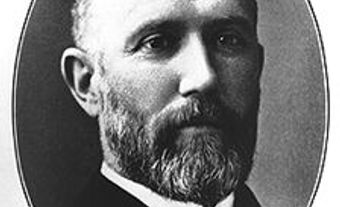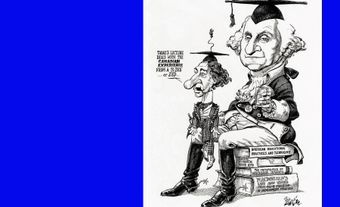Accounting
Accounting is the process of measuring and reporting on the financial activities of organizations. Accountants must select from a large number of events those which affect an organization and can be measured financially; the events selected and measured are then presented in financial reports. Users of accounting reports include managers within an organization as well as outsiders who are interested in what the organization has achieved; eg, shareholders, creditors, governments and investors.
Accounting can be divided in 2 subdisciplines (correlated to user category). Financial accounting is more widely known because it produces balance sheets, income statements and statements of changes in financial position, which are generally disseminated both within and outside an organization or firm. Managerial accounting, on the other hand, is more concerned with the information needs of internal management and is used to formulate, execute, and evaluate plans and policies. While both financial and managerial accounting require technicians for systematic record keeping and data collection, the more complex part of the work is usually done by professional accountants. In financial accounting, the annual and interim reports are designed and prepared by specialists, and are reviewed and attested by auditors or public professional accountants. For managerial purposes, the selection of relevant information and the determination of measurement rules are normally the responsibility of highly qualified accountants.
Accounting is centuries old and has evolved from a strict custodianship function to one concerned with taxation, auditing, information systems, economics, etc. However, although record keeping can be traced back to Babylon, and double-entry bookkeeping was used as early as 1494, the accounting professions in North America are fairly recent. The first known official meeting of North American accountants was held in Montréal in June 1879, for the purpose of establishing a society to promote the profession. Three large associations now exist in Canada. The oldest, established in 1902 as the Dominion Association of Chartered Accountants, is now called the Canadian Institute of Chartered Accountants; members of the institute are designated as CAs. The Society of Management Accountants (CMAs) was originally formed in 1920 under the name of the Canadian Society of Cost Accountants. The Canadian Certified General Accountants Association (CGAs) was incorporated in 1913 as the General Accounting Association. Each association has a national organization but, since education is under provincial jurisdiction, each has provincial organizations (known as institutes, orders, associations or societies) to establish and control education and entry requirements.
Each association imposes professional examinations and practical experience requirements. The chartered accountants were the first, in 1970, to require a university degree of their members. In addition to a degree, candidates must complete a program of advanced professional study, pass a nationwide final exam and complete a 2- or 3-year term of service with an approved public accounting firm. The certified general accountant candidates can complete their university degrees before or after the professional examinations and must have practical experience in a business firm or in government. Although it is possible to become an CMA with a high school education, a very large proportion of candidates take university courses. All major Canadian universities offer courses that prepare candidates for the professional examinations.
Private accounting offers a variety of job opportunities, ranging from the technical aspects of bookkeeping to the more complex processes of administrative planning. Private accountants work for specific organizations; eg, governments, hospitals and universities. In medium-sized as well as in large business corporations, important financial positions (eg, controller, chief accountant, treasurer, internal auditor) are usually held by professional accountants.
Public accounting includes activities such as auditing, management consulting, reporting on other financial information for creditors or governments, and perhaps serving as trustees in bankruptcy cases. Auditing is related to the attest function - the expression of an opinion about the fairness of accounting reports, which is a legal requirement for public corporations. Auditing is reserved, in some provinces, for chartered accountants. Consulting on accounting, taxation, information systems and finance, etc, has expanded rapidly in the last few decades and will probably continue to do so.
The 3 major accounting associations each publish a journal: the CA Magazine, Cost and Management and the CGA Magazine.

 Share on Facebook
Share on Facebook Share on X
Share on X Share by Email
Share by Email Share on Google Classroom
Share on Google Classroom


